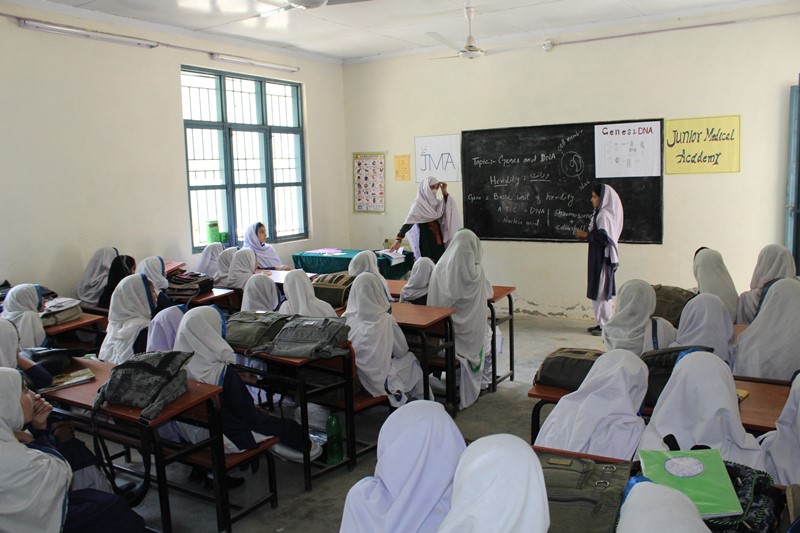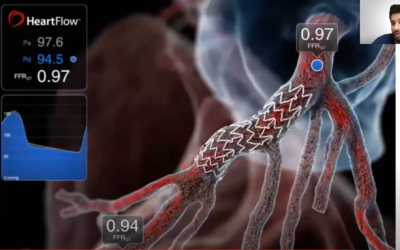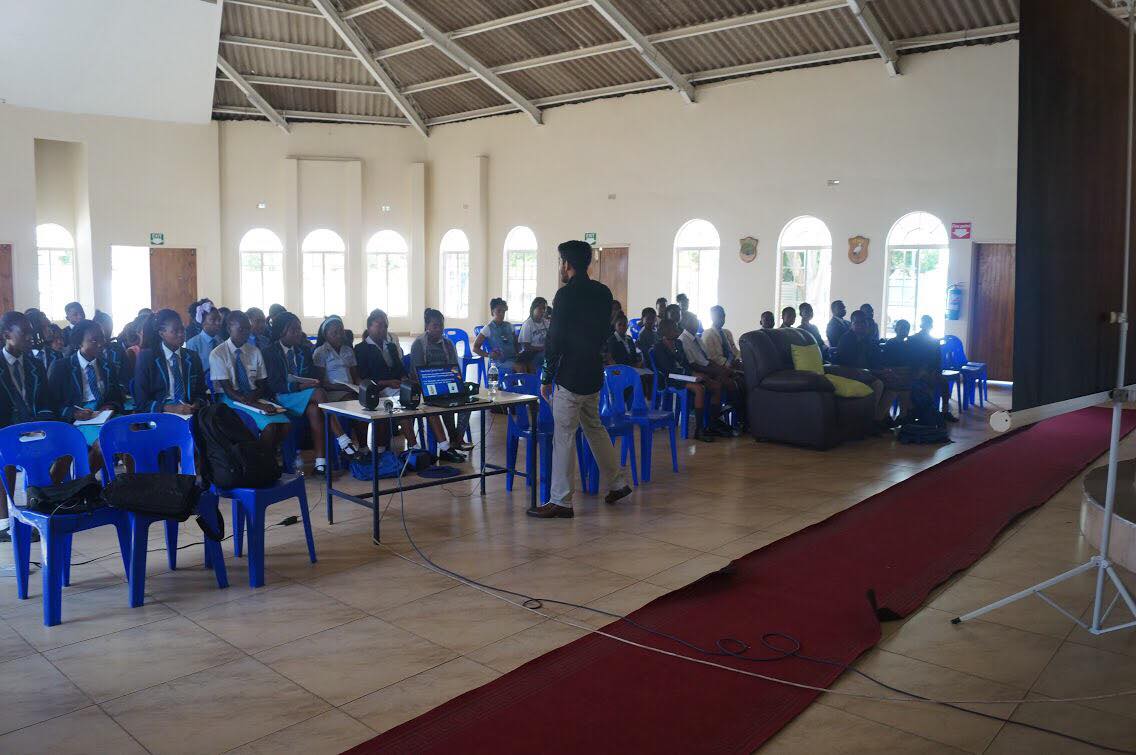The forty girls in the new chapter pose in front of the comunity-ran girls’ school.
Mansehra district in Khyber Pakhtoonkhawa Province, Pakistan—In partnership with Friends Welfare Association Pakistan and with support from Hoshyar Foundation USA, a fellow nonprofit that advocates for the education of girls in underserved locations, Junior Medical Academy’s (JMA’s) second international chapter was established in a local community-ran girls’ public school in the village of Jabar Gali. Here, the girls are vulnerable and often do not get past a primary school level education, affecting their ability to protect their own rights and barring them from their true potentials. Thus, having programs and teachers to ensure the education of girls to at least a secondary level is necessary and impactful. This school has an enrollment of forty students in Class 6 (the class represented in the pictures). After the creation of two new science classes, JMA’s curriculum has been gradually incorporated into the curriculum. In these photographs, the girls in Class 6 listen and collaborate with each other to better understand the material and work on the handouts as the instructor lectures about genetics using the guidelines for lesson five (Genetics) from JMA’s teacher handbook and curriculum materials.
Resonating with the visions of Friends Welfare Association Pakistan and Hoshyar Foundation USA, JMA also hopes to improve educational accessibility and efficacy for underserved populations. Overall, JMA’s mission is to have the greatest impact on the most amount of students from underserved communities with the hope of influencing them to pursue STEM-related careers and be the doctors and scientists of tomorrow, while giving them a quality free education and helping them work toward brighter futures. The development of the Jabar Gali chapter has not only been touching to JMA’s staff, but also, it has allowed JMA to progress toward the next milestone in its journey and to advance its mission statement.

The teacher-student and peer interactions present in Jabar Gali school chapter is a great example of the kind of teaching that is consistent with JMA’s philosophy. In contrast to most academic institutions in which repetition, tests, quizzes, and results are valued more than the purpose of learning or interest in the material being taught, JMA emphasizes developing a strong teacher to student bond through utilizing a curriculum that is relatable to the students and activities that are enjoyable and indirectly test the students’ knowledge. With its analogies to real life, popular children’s games, and things that elementary students are familiar with, the foreign concepts that are embedded in biology are illustrated in a simpler and more understandable way that students are more receptive to. This also helps to bridge the intellectual and emotional gaps between the students and teachers, which encourages the students to feel comfortable enough to properly engage with the class and ask the teacher questions. Breaking the communication barrier and cultivating a more welcoming academic environment is necessary for students to truly enjoy and effectively learn concepts. JMA encourages the use of review games that makes the process of retention fun and inspires healthy competition. For example, in the past JMA has utilized relay races, jeopardy, scavenger hunts, and spin offs of popular children’s games as methods to test the knowledge of the participating students.

To ensure that the Jabar Gali school chapter is completely set up, JMA has presented their curriculum book, which includes a few paragraphs summarizing background information for each topic and a built in script that match slide by slide to the powerpoints that are also provided, all for teacher reference. Since in many underserved areas highly trained or simply just teachers are hard to find, JMA has taken this into account and simplified the material to provide enough background for the teachers to understand the topics and enough script backing, so the teachers can easily navigate through the entire course even when their training is minimal. The previously mentioned analogies are also embedded within the scripts to
maintain consistency and suggest to the teachers what kind of analogies they should be making. The instructions for the games and activities as well as the necessary materials and team split ups are included at the end of each topic, so the teachers can easily reproduce what has been done here in the United States. General teacher tips, class structure information, and reference material is also included for reference.
JMA deeply thanks Friends Welfare Association Pakistan and the Hoshyar Foundation USA for reaching out to these underserved schools and managing to incorporate JMA’s curriculum into functioning classes. We wish them and the Jabar Gali chapter the greatest of success as they develop and gain a larger student and teacher base.




0 Comments